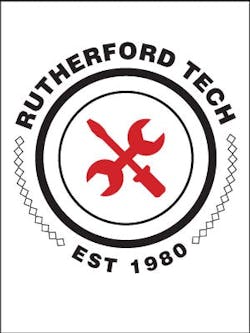Joining a School Advisory Board
Automotive trade schools need help from repair professionals. They need insight, input and guidance to help provide the best possible education to the industry’s future workforce. Without that assistance, school training curriculums become easily outdated due to constant changes to vehicles and repair procedures, says Scott LaPlante, owner of Sherwood Auto Repair in Tualatin, Ore. The best way to offer feedback to schools is by getting involved with their advisory boards.
LaPlante, a former advisory board member, discusses why all shop operators should consider joining a trade school advisory board, and the value it can create both for the industry and your business.
It’s important for schools to have technical input from industry professionals regarding the types of curriculum, training and education they should offer. Schools rely on shop operators to relay real-world requirements to instructors who are training the industry’s upcoming technicians. This helps school instructors better understand the skills they need to deliver to students in order to make them more employable.
I served on the curriculum advisory board for Portland Community College for eight years, from 2004 through 2012. As a member of the board, I presented curriculum updates, improvements and changes due to industry trends, new technologies and vehicle design evolution. I helped the school remain current with its NATEF certification, and provided advice for tooling and equipment purchases, training materials and work behaviors that students should graduate with—such as attitude and work ethic.
I also had direct contact with students. Portland Community College has a cooperative educational program for students in which they get credit for going to work in a real-world environment. I mentored a few of those students in our shop, and continue to do so today. I also occasionally spoke during school classes about things technicians are likely to see and experience on the job after entering the workforce in both independent and dealership repair shop environments.
—Scott LaPlante, owner, Sherwood Auto Repair
Involvement in the school advisory board did not consume a lot of time. We met once each quarter—four times annually—for about three hours. It required less than 15 hours of time each year.
This effort provided several benefits back to our shop:
Networking. Other shop operators also serve on the board, which has provided valuable networking opportunities. I have learned many ideas from them to improve my business.
Information access. The school took the concepts that the board suggested are important and implemented the ideas into their training courses. For example, we suggested investing in tools and equipment, information aides and training aides on various topics for the instructors. Those resources and training are now available to us as well.
Training. This has helped me stay in tune with new ideas, equipment and skills necessary at our shop. There is high-quality aftermarket training available through the school, such as hybrid programs, that I wouldn’t have known about without being involved.
Technician acquisition. The cooperative program has allowed us to generate a lot of direct contact with high-achieving students in the program. We have acquired a few of those skilled technicians to work in our facility after graduation, which is highly beneficial as it gets harder to find qualified employees.
Getting involved with an advisory board isn’t difficult. Schools typically don’t have people lined up at their door trying to get a seat, and it can be difficult for schools to find professionals willing to dedicate their time. In some cases, schools require board members to be invited in order to join. But they won’t call you out of the blue, so you have to express interest first. Contact the people who are responsible for the school’s automotive advisory board—usually the department chair or dean—and let them know you’re interested in filling the next open board position. Automotive trade schools are located throughout the country, so it’s likely that there’s at least one school near your local area to get involved with.
Involvement with a trade school advisory board is one way that shop operators can positively influence the future health, integrity and image of the industry. All shop operators should consider getting involved because of the opportunity to have opinions shared with the people who are training future technicians. If you want today’s students to eventually work at your shop, you need to ensure they’re equipped with the right knowledge, skills and work habits.
